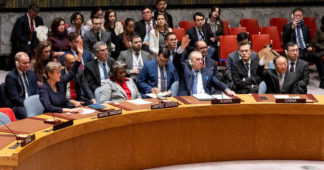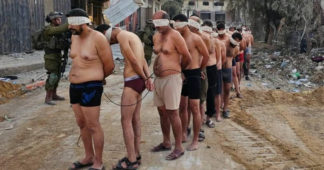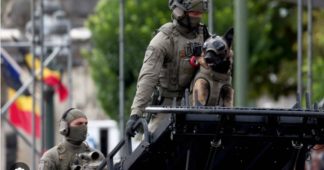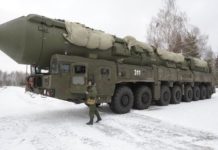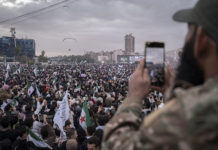LESSONS FROM THE AD HOC TRIBUNALS AND THE ICC
By Yiannis Rachiotis*, Attorney-at-Law
Abstract.
Ad hoc tribunals of post cold-war era and the ICC have consistently served as instruments of geopolitical power rather than impartial judicial bodies, administering a form of “victor’s justice” that targets defeated or adversarial nations. The analysis highlights systemic issues of selectivity, political bias, and the erosion of fundamental principles of criminal law. Case studies of the ICTY, ICTR, SCSL and ICC demonstrate their role in legitimizing Western interventions and reinforcing global power asymmetries. The conclusion questions the very possibility of impartial international criminal justice within the current unipolar world order and suggests that prosecuting international crimes should primarily be the responsibility of national courts.
Keywords: ad hoc international criminal tribunals, ICC, ICTY, selective justice, victor’s justice, impartiality, hybrid courts.
1. Introduction
The issue of international criminal liability of the leaders of a defeated state for grave crimes against victorious nations was first raised in the aftermath of the Napoleonic Wars. Contemporary deliberations emphasized the necessity of a concerted international response to such circumstances; nevertheless, exile was ultimately preferred, as a political solution, over military execution or the prospect of a trial whose juridical foundations would have been highly uncertain, whether at the national or the international level.
Since the late nineteenth century, the first codifications of rules respecting the Laws and Customs of War emerged: the Geneva Convention of 1864 and the St. Petersburg Declaration of 1868, the Hague Conventions of 1899 and 1907 -most notably the Fourth Hague Convention on Laws and Customs of War on Land together with its annexed Regulations -and, later, the Geneva Conventions of 1929. These instruments contained general references to the question of liability -primarily state responsibility- for violations of the laws and customs of war, but did not include provisions on the criminal responsibility of individuals. Nevertheless, the substantive provisions of these conventions, in conjunction with the well-known Martens Clause[1], constituted the foundation for the development of the criminal dimension of international humanitarian law.
The first substantial attempt to establish a system of international criminal justice can be traced to the Treaty of Versailles (28 June 1919), which provided that the German Emperor Wilhelm II[2] would be tried before a special international tribunal for the “supreme offence against international morality and the sanctity of treaties.[3]” Article 228§2 further obliged Germany to surrender to the Allies those individuals implicated in war crimes so that they could be tried by military courts. Germany, however, failed to comply.
A similar provision was included in the Treaty of Sèvres (1920)[4], which required the surrender of suspects accused of heinous crimes not only against soldiers of the Allied forces or foreigners but also against Ottoman citizens themselves (primarily of Armenian origin), to be tried before an as yet unspecified international tribunal. This provision was never implemented, as Turkey refused to ratify the Treaty of Sèvres.
It is evident that the establishment of an international system of criminal justice presupposes the definition of international crimes; the attribution of international criminal responsibility to individuals; and the establishment of competent courts -whether national or international. None of these elements existed until the Second World War. The then prevailing view was that the creation of such a system would be contrary to the principle of state sovereignty, which recognized the monopoly of criminal jurisdiction as lying exclusively with the state. Furthermore, it was argued that such a system would be incompatible with the Hague Regulations of 1907, which stipulated that international treaties created rights and obligations only for states. Specifically, the Hague Regulations of 1899 and 1907 concerning the laws of war did not aim to establish the individual criminal responsibility of persons, but rather imposed obligations and duties on the contracting states. In particular, although certain acts were characterized as unlawful, the absence of criminal sanctions for their perpetration meant that they did not constitute criminal offenses[5].
2. The First International Criminal Tribunals
2.1. The International Military Tribunal at Nuremberg (IMT)
On 8 August 1945, the four victorious powers signed in London the agreement establishing the IMT, which commenced proceedings on 18 October 1945 against 22 leaders of the Third Reich.
For the first time, its Charter codified individual criminal responsibility for crimes against peace, crimes against humanity, and war crimes — even when such acts were not punishable under the domestic law of the perpetrator’s state or were committed under superior orders. It also introduced the offence of conspiracy to commit such crimes, which was punishable as severely as the commission of the crimes themselves.
War crimes were defined to include, inter alia, the “wanton destruction of cities, towns or villages, or devastation not justified by military necessity.”[6] Yet, only two days before the signing of the Charter, one of the signatory powers had committed one of the most atrocious war crimes of the twentieth century -the destruction of Hiroshima-without any military justification. A day after the signing, it committed an identical act in Nagasaki. The Nuremberg principles were never applied to these crimes. Thus, the initial implementation of international criminal justice was far from promising.
2.2. The International Military Tribunal for the Far East (IMTFE)
On 3 May 1946, the IMTFE commenced its proceedings in Tokyo. Unlike Nuremberg, its legal basis was not an international treaty but rather an order of General MacArthur, Supreme Commander of the Allied Forces in the Pacific, issued on 19 January 1946. 28 Japanese politicians or military leaders were indicted.
Emperor Hirohito, despite being the supreme authority who had sanctioned all of Japan’s wars and exercised direct control over the army and navy, was excluded from indictment after a U.S. political decision aimed at facilitating the occupation through a façade of continuity in the Japanese state.
The indictment did not include crimes against humanity but instead focused on the notion of “conspiracy” and on “crimes against peace.” Japanese war crimes in Korea and Taiwan were entirely ignored, as Japanese forces in those territories temporarily served U.S. interests after the surrender. Likewise, the biological and medical experiments conducted on prisoners by Japanese units were omitted, since the United States, which had acquired the resulting data, had a vested interest in keeping them secret.
The Tribunal adopted what would later be known as the “Yamashita standard,” namely the imposition of criminal liability on defendants who had neither ordered nor had knowledge of the crimes, nor had been present in the area where they were committed. This approach although incompatible with the fundamental tenets of criminal law, as shaped since the Enlightenment, which require for culpability both, action or omission and a subjective element of intent or negligence, was later embraced and developed by the ad hoc tribunals of the 1990s and the ICC.
2.3. Procedural Safeguards
Both the IMT and the IMTFE, according to their constitutive instruments, were not bound by “technical rules of evidence.” They were free to admit any material they deemed to have “probative value,” a practice that runs counter to the principle of a fair trial.
2.4. The Law of the Victor
Both tribunals were criticized of administering the law of the victor. The legitimacy of their approaches were rested rather 1. On the unprecedented scale of the crimes committed by the Axis powers, 2. On the overwhelming defeat of the Axis , 3. On the unity of the victorious bloc, than founded on the internationally recognized principles of criminal law . The later endorsement of the judgments of both tribunals’ by the UN General Assembly provided them political validation, but it is hardly arguable that it furnished them with solid legal foundation.
3. The Absence of International Criminal Tribunals during the balance of power period
Following the Nuremberg and Tokyo trials, the world entered a forty-seven year period without formation of international criminal tribunals or serious discussion of their creation despite the fact that atrocious war crimes were committed during this period. The crimes of the United States in Vietnam and Korea, of Israel in Palestine , of France in Algeria, of Belgium in Congo, were well known and well documented but no question of international criminal justice was raised because two essential conditions for the establishment of international criminal justice were absent:
1. None of the states that committed the aforementioned crimes had suffered a decisive defeat.
2. All perpetrators were officials of states that belonged to one of the strongest poles of the tri-polar international system that had arisen after the split of the victorious powers of WWII and the decolonization process.
4. The Post-Cold War establishment of the ad hoc Tribunals.
Following the West’s victory in the Cold War, the dissolution of its rival poles and the partition of Eastern Europe and Balkans into a large number of weak states, the victorious powers sought the creation of various international or hybrid criminal tribunals to try their defeated adversaries.
The International Criminal Tribunal for the Former Yugoslavia (ICTY) in 1993 and the International Criminal Tribunal for Rwanda (ICTR) in 1994 were both created by the Security Council at the initiative of the victorious Western powers.
During the same period several “hybrid” tribunals (combining international with local elements) were established by Security Council / UN General Assembly resolutions, or through bilateral agreements or as local Courts, under Western sponsorship, funding, and control. Some of them were:
-The Special Court for Sierra Leone,
-the Special Court for Bosnia and Herzegovina,
-the Kosovo Specialist Chambers
-the Extraordinary Chambers in the Courts of Cambodia that tried the remnants of Red Khmer leadership
-the Special Tribunal for Lebanon, established by the UN SC Resolution 1757 (2007), under Chapter VII of the UN Charter, following a denial of Lebanon’s parliament to ratify the agreement between the UN and the Lebanese government
– the Iraqi Special Tribunal (IST), later renamed as the Iraqi High Tribunal (IHT), established in 2003 by the Coalition Provisional Authority to try Sadam Hussein.
– The German Criminal Courts ( 1992-1997) that tried the leadership of German Democratic Republic (GDR) for actions committed in GDR before its absorption.
All the aforementioned ad hoc tribunals were given jurisdiction limited ratione temporis and ratione loci. Some of them were based in the Hague and the rest in the countries where the alleged crimes took place. The discussion that follows is restricted to an examination of certain operational features of just three of this era’s ad hoc tribunals. This is by no means to suggest that the others fail to provide valuable evidence for research.
4.1. The International Criminal Tribunal for the Former Yugoslavia (ICTY)
Through Resolutions 771 (1992) and 808 (1993), the Security Council expressed its deep “concern” over violations of international humanitarian law and attempted “ethnic cleansing” in the former Yugoslavia and little later adopted Resolution 827 (1993)[7], establishing the ICTY under Chapter VII of the UN Charter. In other words, ICTY was established as a non-military measure for the protection of international peace and security under Article 41 of the Charter, which authorizes sanctions prior to the resort to armed force. Yet, the internal conflict within Yugoslavia could scarcely be characterized as a threat to international peace or as an imminent act of aggression against third states. Even more tenuous was the classification of an international tribunal as a form of “sanction” or “preventive measure” within the meaning of Article 41.
The ICTY was seated in The Hague, far removed from Yugoslav territory. The post-Cold War composition of the Security Council selected the first eleven judges, whose appointment was confirmed by the General Assembly. The Tribunal formally commenced operations on 17 November 1993.
The establishment of the ICTY amidst the violent disintegration of Yugoslavia was not merely a legal initiative but a political intervention of high strategic intensity, cloaked in the rhetoric of international justice yet dictated by the West’s geopolitical repositioning in the Balkans. Financed and supported by the United States and the European Union, it faced skepticism from Russia and China, who either voiced reservations or abstained. Selectivity was evident: no prosecutions were initiated for NATO’s 1999 bombing of Belgrade, despite well-documented targeted civilian casualties.
The Statute of the ICTY limited its jurisdiction to specific categories of crimes: grave breaches of the Geneva Conventions (1949), violations of the laws or customs of war, and crimes against humanity, all committed after 1991. It was the first tribunal since Nuremberg and Tokyo mandated to prosecute individuals for international crimes. To date, it has indicted over 160 individuals, including heads of state and government, military commanders, as well as mid-level political and military officials- the overwhelming majority of them Serbs.
The indictments were far from neutral. They framed a narrative casting the Serb side—and in particular Slobodan Milošević—as the principal orchestrator of the bloodshed, disregarding the complexity of the conflict. Milošević, the sitting President of Yugoslavia, was charged with genocide, crimes against humanity, and participation in a joint criminal enterprise (JCE). The indictment attributed to him personal responsibility for ethnic cleansing, while minimizing the role of other leaderships (Croatian, Bosnian, NATO, etc.).
The trial of Milošević, plagued by violations of basic principles of criminal procedure, was less a judicial process than a political spectacle designed to legitimize Western intervention in dismantling the most powerful state in the Balkans, to demonize the accused, and to obscure the crimes committed by Western forces and their local allies. Fundamental guarantees, such as the principle of the natural judge, were violated: judges and prosecutors were replaced during the trial without repetition of prior proceedings. The Tribunal itself orchestrated a campaign of public vilification, through press releases, prosecutorial statements, open records, live broadcasts, and strategic media leaks, designed to provoke moral outrage. Such practices openly contravened the presumption of innocence, impartiality obligations of judges and prosecutors, and the very essence of criminal justice.
Milošević conducted his own defense, without counsel’s assistance, for five years, despite serious health problems, and in large measure disrupted the show that had been prepared. The trial ended without a verdict, as he died in custody in The Hague on 11 March 2006, arguably due to inadequate medical care despite repeated requests for hospitalization in an appropriate facility.
Το secure convictions of Serbian leaders for acts in which they neither participated nor could have knowledge in advance, the ICTY repeatedly applied a legal construct derived from Anglo-Saxon law -the doctrine of “Joint Criminal Enterprise” (JCE). Its core premise was that when several persons join in planning a common course of conduct involving the commission of crimes, each participant is criminally responsible for the crimes of the others, even if not originally foreseen but naturally foreseeable as a consequence of the plan. Thus, political and military commanders could be held liable for crimes committed by subordinates, without proof of intent or personal involvement—provided that a common political-military plan was demonstrated. This construction contradicts the definition of crime as an unlawful imputable act of the perpetrator, as required by modern criminal law since the Enlightenment. It has been widely criticized for expanding the scope of mens rea beyond acceptable limits, lacking foundation in international law, and failing to qualify as customary international law.
4.2. The International Criminal Tribunal for Rwanda (ICTR)
Nearly one year after the establishment of the ICTY, on 8 November 1994, the Security Council created another ad hoc tribunal for Rwanda, again under Chapter VII of the UN Charter (Resolution 955). Its jurisdiction was temporally limited, with the effect of targeting exclusively members of the Hutu majority, while excluding the crimes of the Tutsi minority, Uganda, and their Western allies, whose actions had triggered the massacres of 1994. Thus, the Tribunal was founded on a biased and selective basis.
The ICTR’s subject-matter jurisdiction encompassed three categories: genocide, crimes against humanity, and violations of common Article 3 of the Geneva Conventions and Additional Protocol II[8]. Article 8 of the Statute extended its jurisdiction not only over Rwanda but also the territory of neighboring states[9].
The ICTR indicted 93 individuals, primarily members of Rwanda’s political and military leadership prior to the regime change of summer 1994. Like the ICTY, the ICTR was granted primacy over national courts, reflecting a neo-colonial distrust of local authorities.
The structure of the indictments was deeply political. The Tribunal effectively ratified the victory of the Rwandan Patriotic Front (RPF), transforming itself into an instrument of consolidating power by dismantling its opponents. While projecting an image of impartiality, its prosecutorial strategy focused exclusively on Hutu crimes, reinforcing a one-sided narrative of guilt and innocence. High-level officials declared that the ICTR would “end the culture of impunity,” while remaining silent on RPF crimes committed against Hutus during the 1990-1994 invasion. Allegations of mass killings of hundreds of thousands of Hutus by Kagame’s RPF were never investigated. The Prosecutor Carla Del Ponte, who attempted to extend prosecutions to include RPF crimes, was removed from her post.
The West used the ICTR as a vehicle to atone for its complicity in supporting the RPF’s invasion and subsequent dictatorship, as well as for their absence during the genocide. The ICTR thus stands as a paradigmatic example of institutional selectivity in international criminal law.
4.3. Hybrid Tribunals. The Special Court for Sierra Leone (SCSL)
Established in 2002 by agreement between the UN Secretary-General and the Government of Sierra Leone, ratified by a presidential decree. It consisted partly of local judges and was seated in Freetown. It was mandated to prosecute war crimes, crimes against humanity, and violations of Sierra Leonean domestic law committed after 1996. However, under Sierra Leone’s Constitution, any modification of the judicial system required ratification by a referendum . A mere presidential decree was not enough. This lack of constitutional legitimacy was raised by the thirteen defendants, but their objections were dismissed with weak reasoning.
Uniquely, the SCSL asserted jurisdiction over the sitting President of another state, Charles Taylor of Liberia, for aiding one of the parties to the Sierra Leonean civil war[10]. SCSL issued arrest warrant against Taylor on 7 March 2003 during his official visit to Ghana, coinciding with a U.S.-backed coup attempt in Liberia at the very same day. Ghana refused to arrest him, but he was later captured after his overthrow by U.S.- supported militias. Taylor’s trial was relocated from Sierra Leone to The Hague, ostensibly for security reasons, and now he is serving a 50-year sentence in the United Kingdom.
5. The International Criminal Court (ICC)
The legitimacy deficits of the ad hoc tribunals were the principal rationale for establishing a permanent International Criminal Court. Western powers leading the initiative assumed that a permanent institution would enjoy greater credibility than ad hoc international criminal courts.
The ICC was created through the Rome Diplomatic Conference (1998–1999), which adopted its Statute. It entered into force in 2002, with jurisdiction over individuals accused of genocide, crimes against humanity, war crimes, and the crime of aggression, irrespective of official capacity or political position.
It has jurisdiction for crimes committed on the territory of a state party, on the territory of a state accepting its jurisdiction by special agreement, or by a national of a state party anywhere.
The Court consists of 18 judges, a Prosecutor, and Deputy Prosecutors. Regardless of their nationality, the vast majority have prior service in international organizations heavily shaped by U.S. influence. Prosecutor plays a central role in initiating cases. The current Prosecutor, lawyer Karim Khan (UK) has withdrawn, being under investigation for alleged offenses and misconducts.
The ICC now has 125 state parties, though they represent only a fraction of the global population. Major powers -including the U.S./Israel, China, Russia, India, Indonesia, Pakistan, Turkey and others , have either not joined or withdrawn, underscoring the structural asymmetry of the institution. The U.S, while leading negotiations for its creation, withdrew its signature on the statute. Despite its withdrawal yet continues to influence the Court’s actions, often directing it against geopolitical rivals (most recently with respect to Russia and Ukraine[11]). To shield its own personnel, the U.S. concluded over 100 bilateral immunity agreements with states parties, excluding American political and military personnel from ICC jurisdiction.
During its first two decades, the ICC focused almost exclusively on Africa, reproducing a neo-colonial stereotype of a “civilized North punishing the violent South,” while in practice supporting specific imperial and neo-colonial interventions, coups, and invasions. Illustrative examples include:
issuing arrest warrants (2009, 2010) against Sudanese President Omar al-Bashir, who was against the partition of its country that was pursued by the West and eventually happened on 2011;
issuing warrants against Muammar Gaddafi and his son during NATO’s 2011 bombing campaign in Libya;
imprisoning on 2008 Jean-Pierre Bemba (former Vice President of the DRC) for 10 years on charges from which he was later acquitted, by ICC’s court of appeal. The ICC’s secret arrest warrant was issued one day after his arrest in Belgium! At the time of his arrest was candidate for President in his country. His arrest effectively prevented his presidential bid;
On 2010 ICC prosecuted the Kenyan leaders Uhuru Kenyatta and William Ruto for alleged crimes committed after the general elections of 2007. The prosecution confirmed on 2012. At the time of prosecution, they were the candidates for the posts of the president and vice president respectively of the country for the coming elections of 2013. The persecution was widely denounced as political interference, prompting an African Union backlash accusing the ICC of “neo-colonial justice.”. Finaly they were elected with a great majority in the elections of 2013 and were reelected in the elections of 2017. The general outcry forced ICC to withdrew the prosecution after the elections.
Since 2022, the ICC has expanded prosecutions beyond Africa, always targeting Western geopolitical adversaries. It has issued warrants against Russia’s President and senior officials, and recently against former Philippine President Rodrigo Duterte.
In Duterte’s case, jurisdiction was dubiously asserted despite the Philippines’ withdrawal from the ICC in 2019. ICC issued a secret (!) arrest warrant against the former President but the new government of Philippines could not execute it directly, because Philippines since long time ago was not a state-party of ICC. To overpass this “obstacle” Interpol in which Philippines is a state party issued a “red notice” against Duterte on behalf of ICC although ICC is not a member of Interpol[12]. This procedure raises significant legal concerns, as non-member states of the ICC cannot be bound by its decisions through procedural actions undertaken by other international organizations. After his arrest, the ex-President Duterte was immediately transferred to the seat of the ICC in The Hague without a local judicial review for release or pretrial detention, as stipulated in Article 59 of the Rome Statute. The government stated that, since the Philippines is no longer a State Party to the ICC, it is not bound by the provisions of the Statute, though it considered itself obligated with respect to the execution of the warrant. This was widely interpreted as politically motivated, given the facts that Duterte during his presidency reduced U.S. dominance in the Philippines, improved relations with China and still has strong influence in the country.
The arrest warrants against Netanyahu and Gantz are the only ones ever issued against Western politicians, and were issued only after the entire world had witnessed Israel’s genocide against the Palestinian nation. For more than ten years prior, the ICC had consistently refused even to initiate a preliminary investigation into Israel’s crimes, using the excuse of “budget constraints”. When Israel’s genocide in Gaza became impossible to ignore, the ICC was compelled -to salvage its collapsing credibility- to issue public arrest warrants against two Israelis. However, in an apparent effort to neutralize the backlash and balance the narrative, the Prosecutor requested simultaneously for arrest warrants for three Palestinian leaders Yahya Sinwar, Mohammed al-Deif, and Ismail Haniyeh who later have all been assassinated by Israel. Immediately afterward, all Western governments announced that they would not execute the warrants against the Israeli officials and US went so far as to sanction the judges who issued the warrants. Some Western governments even declared the warrants against Israeli leaders invalid on the grounds that heads of state enjoy international immunity. They made no such claim, however, when warrants were issued against Vladimir Putin, Rodrigo Duterte, Omar al-Bashir, or Muammar Gaddafi.
Comparable bias in favor of Western interests has characterized the ICC’s approach to other cases throughout its twenty-three years of operation. Selective prosecution reproduces the structure of global political hegemony, and the ICC has demonstrated itself to function as a legal extension of Western geopolitical will. The trials it organized fall far short of any standard of fairness. They failed to secure even the minimal rights of the accused and often resembled public relations performances rather than genuine criminal proceedings. Its Statute and subsidiary instruments are inadequate and open to authoritarian interpretations. Pre-trial detention is of unlimited duration; the principle of proportionality in sentencing is not applied; It has embraced the Anglosaxon–neoliberal “victim-centered” approach to criminal law and criminal procedure, resulting in a systematic erosion of defendants’ rights and a deficiency of guarantees concerning the execution of sentences.
The ICC has thus revealed itself as biased and partial and therefore lacking of credibility. Its continued function undermines the very notion of justice. In recent years its credibility has declined further due to internal conflicts, corruption and even criminal misconduct.
- Initiatives for new ad hoc International Criminal Tribunals
The West continues to explore possibilities for the creation of new ad hoc international criminal mechanisms. A recent example is the International Centre for the Prosecution of the Crime of Aggression against Ukraine (ICPA), established by the European Union in the summer of 2023 with the ambition of laying the foundation for a hybrid special tribunal intended to prosecute Russian leaders for the crime of aggression. It is based in The Hague and hosted by Eurojust, the EU Agency for Criminal Justice Cooperation. The ICPA brings together prosecutors from Ukraine, the European Union, and the ICC. A joint investigative team has been formed by Lithuania, Poland, Estonia, Latvia, Slovakia, Romania, and Ukraine, coordinated by Eurojust. Since 2023, the United States and Europol have also participated. It is evident that tribunals emerging from NATO and EU mechanisms cannot credibly be regarded as impartial. The participation of the ICC within this mechanism once again reveals its alignment with western interests.
- Discussion, Conclusions, and Proposals
International criminal justice signifies a radical transformation within public international law: the acceptance of the individual as a bearer of international criminal responsibility which offered the theoretical base for the formation of the various ad hoc international criminal courts and of the ICC.
None of the international criminal tribunals of the post-Cold War era has justified its establishment. They have failed to uphold the fundamental principles of criminal justice, notably the principle of fair trial, of nullum crimen, nulla poena sine lege certa (NPNCSLC), the obligation of impartiality, and the presumption of innocence. Their political subordination to the powerful Western states has been absolute, and they have served as tools of geopolitical objectives.
We should distinguish between the already existing conditions required for systematizing a corpus of international criminal law and the non existing conditions for establishing fair and impartial international criminal tribunals.
International crimes such as war crimes, crimes against humanity, genocide, and terrorist crimes with a distinctly international dimension, concern humanity as a whole and should be defined as international crimes. The elements of these must be defined in detail so that their prosecution won’t violate the principle of NPNCSLC .
Experience to date demonstrates that there are no conditions under which the prosecution of international crimes can be entrusted to an impartial and fair international criminal tribunal. The primary reason is the present, essentially unipolar structure of the world order. So long as a single bloc of states possesses the capacity to impose its will upon most of the globe, it is inevitable that its power will be projected in any international criminal judicial body created. This is especially evident at the pre-trial stage and at the stage of sentence enforcement, both of which necessarily involve coercive measures, rendering any tribunal dependent upon the very bloc of states with the military capacity to enforce (or obstruct) its decisions.
The very concept of establishing an international criminal court -supported by global corresponding policing mechanisms to enforce its rulings reflects a vision of a centrally controlled world order, hostile to multipolarity and finally antithetical to justice, which is far from a desirable objective.
An international criminal tribunal differs fundamentally from other international judicial bodies, such as the ICJ under the UN Charter. Entails the imposition of penal sanctions upon officials of a given state, and thus constitutes a grave infringement of state sovereignty of the weaker states .
Even within a rising more equitable multipolar system, it remains questionable whether an international criminal justice mechanism could operate fairly for the citizens of all states, including the weakest. Ultimately, the prospect of genuinely fair international criminal tribunals belongs neither to the present nor to the near future.
International criminal law should indeed be developed but adjudication process should rest with national courts, and every national judiciary should bear international jurisdiction to try international crimes.
Reference List
*The Chicago citation method is used in this paper
- Meron, “The Martens Clause, Principles of Humanity, and Dictates of Public Conscience,” 94 AJIL, 2000/1, pp. 78–89
Giokaris A., Pasartzi F., “National and International Criminal Repression of International Crimes”, Nomiki Vivliothiki, 2012, p. 110 et seq.
Tsilonis V., The Law of the International Community: International Criminal Justice, Nomiki Vivliothiki, 2022, p. 875.
Cohn Μ., After Undermining International Criminal Court, US Now Wants It to Charge Russians Truthout, April, 2022:
[1]According to the Martens Clause, which is contained in the Preamble to the Fourth Hague Convention of 1907, “until a more complete code of the laws of war has been issued, the High Contracting Parties deem it expedient to declare that, in cases not included in the Regulations adopted by them, the inhabitants and the belligerents remain under the protection and the rule of the principles of the law of nations, as they result from the usages established among civilized peoples, from the laws of humanity, and the dictates of the public conscience.” In combination with the substantive provisions of the Hague and Geneva Conventions (1929), this clause served as the basis for the prosecution of war criminals before the Nuremberg Tribunal and was later reiterated in other treaty texts, such as the Geneva Conventions of 1949 and the Additional Protocols of 1977. On the Martens Clause and its contemporary relevance, see T. Meron, “The Martens Clause, Principles of Humanity, and Dictates of Public Conscience,” 94 AJIL, 2000/1, pp. 78–89.[2]See Chapter VII of the Treaty of Versailles entitled “Penalties,” Article 227, at: https://avalon.law.yale.edu/imt/partvii.asp. The German Emperor was never tried owing to the refusal of the Netherlands, to which he had fled, to surrender him.
[3] Giokaris A., Pasartzi F., National and International Criminal Repression of International Crimes, Nomiki Vivliothiki, 2012, p. 110 et seq.
[4]Tsilonis V., The Law of the International Community: International Criminal Justice, Nomiki Vivliothiki, 2022, p. 875.
[5] Tsilonis V, supra p.874
[6] Article 6b, Jurisdiction over Persons and Punishment of Major War Criminals, Charter of the International Military Tribunal, annexed to the Agreement for the Prosecution and Punishment of the Major War Criminals of the European Axis (“London Agreement”), signed 8 August 1945.
[7] China and Pakistan abstained.
[8] Articles 2–4 of its Statute.
[9] In contrast to the ICTY, whose jurisdiction was limited to the territory of the former Federal Republic of Yugoslavia (Article 8 of its Statute). UN Doc. S/PV.3453 (1994), p. 6 (statements of New Zealand and the Czech Republic).
[10] If the same principle was applied to the conflict in Ukraine, all leaders of NATO member states would have been prosecuted for the crimes committed by the Ukrainian armed forces, given that they officially declare providing them with arms, training, operational and intelligence support.
[11] https://truthout.org/articles/after-undermining-international-criminal-court-us-wants-it-to-charge-russians/
[12] https://www.icc-cpi.int/court-record/icc-01/21-83
*Rachiotis & Partners Law Office, Athens Greece, lawoffice@rachiotis.gr
.
We remind our readers that publication of articles on our site does not mean that we agree with what is written. Our policy is to publish anything which we consider of interest, so as to assist our readers in forming their opinions. Sometimes we even publish articles with which we totally disagree, since we believe it is important for our readers to be informed on as wide a spectrum of views as possible.

